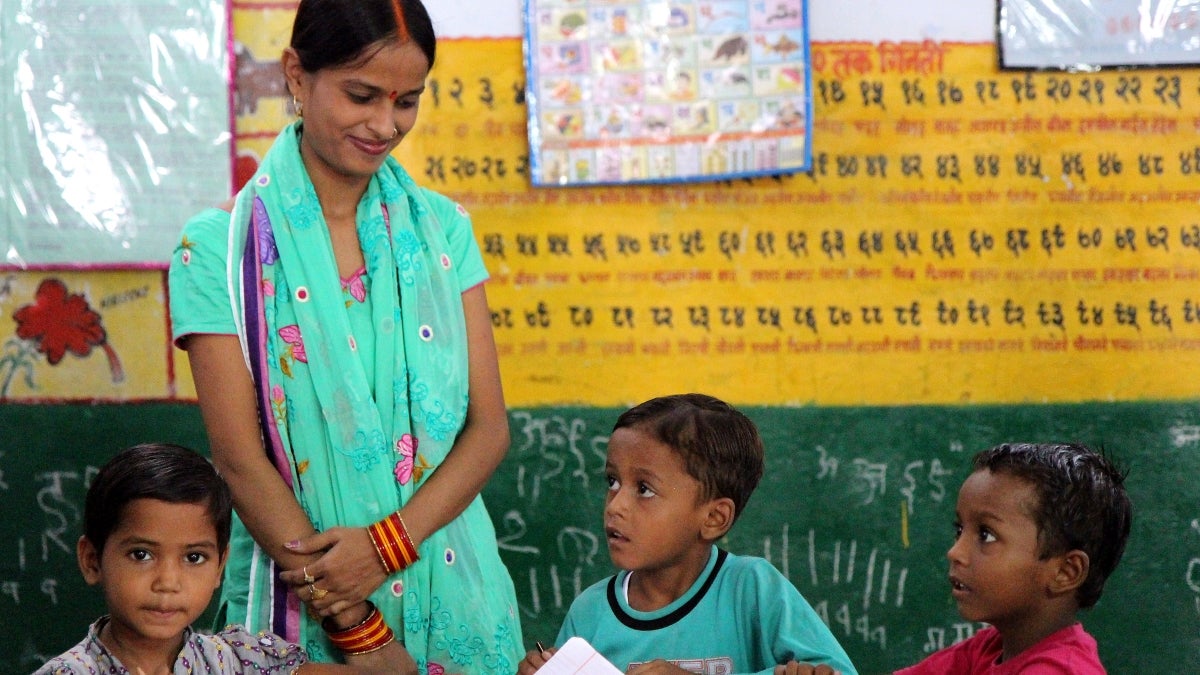ASU unveils new center to study global education

Recognizing education as a universal pathway toward a better world, Mary Lou Fulton Teachers College at Arizona State University announced the formation of its new Center for Advanced Studies in Global Education today. Through the center, the college will extend its pursuit of the highest standards for teaching, discovery and innovation to a global audience. The center will also serve as an ambassador of those intrinsic ASU values that promote inclusion and equity.
“Our mission at Mary Lou Fulton Teachers College has always been to impact and improve the educational status quo,” said Mari Koerner, dean of Teachers College and co-director of the center with Ara Barsam, assistant dean of research and global initiatives. “With this center, we will scale up our research, academic and teaching initiatives to achieve global reach through a network of externally supported projects and research fellows that can expand and leverage our expertise internationally.”
Koerner said the center’s efforts will target educators, teacher educators and education leaders, but the impact will ultimately be to students. “Our goal is to enable students to reach their potential, regardless of age, nationality or socioeconomic status,” she said. “To accomplish that, we will work with basic to post-secondary educational institutions in both public and private sectors in countries and communities worldwide.”
Teachers College has already had success in generating grant, foundation and private funding – including a $4.5 million grant from the U.S. Agency for International Development (USAID) and U.S. Department of State, and $3 million from private donors in the past year alone. Under the USAID grant, more than 100 teacher educators from India spent a three-month residency at ASU last year, enhancing their own teaching skills. Other projects currently under way are preparing teachers and education leaders from Palestine and South Sudan.
According to Koerner, this type of global engagement closely aligns with ASU’s aspiration to reflect the world community in its students, faculty and research programs. In fall 2014, the university welcomed a record 8,000 international students from 63 countries, or approximately 10 percent of ASU’s more than 82,000 students.
“An important aspect of the center will be for Teachers College faculty and scholars to interface with multiple ASU academic units, such as engineering, sustainability and languages and cultures, that also have global agendas,” Koerner said. “By partnering with them, we hope to develop shared projects involving PreK-12 and higher education audiences. And we will bring scholars from all over the country, and the world, to work with our researchers to study how teaching can be improved to support learning of all students.”
Teachers College students preparing for their own teaching careers will also learn to become “citizens of the world,” said Alfredo Artiles, associate dean of academics. One of the center’s goals is to graduate educators who are culturally literate and equipped with knowledge that is applicable both locally and in other places.
“A key goal of today’s educational system is to prepare learners who understand they live in a global community,” he said. “We want to demystify the popular belief that global education is only related to work conducted in other countries. Global issues also affect social, economic, cultural and educational activities right here in Tempe, in Phoenix, in the state of Arizona. It is our responsibility to help our students understand that local and global issues are intimately connected.”
The idea that all education is local, in fact, is how the center will approach broadening its global influence, said Barsam, the center’s co-director. Emphasis will be on best practices in teacher preparation and teacher education, areas of expertise for which the college has been internationally recognized.
“We are not going to be the experts in rural South Sudan or in São Paulo, Brazil, or in Jakarta, Indonesia,” Barsam said. “But Teachers College has the capacity to empower teachers from those communities to adopt and adapt our knowledge and skills and best practices for their local schools.”
Barsam added that education can be a powerful tool to promote understanding among diverse global cultures: “Teachers impact tens of thousands of students over the course of their careers. So investing in even one teacher is really touching thousands of lives.”
Written by Judy Crawford
Media contact: